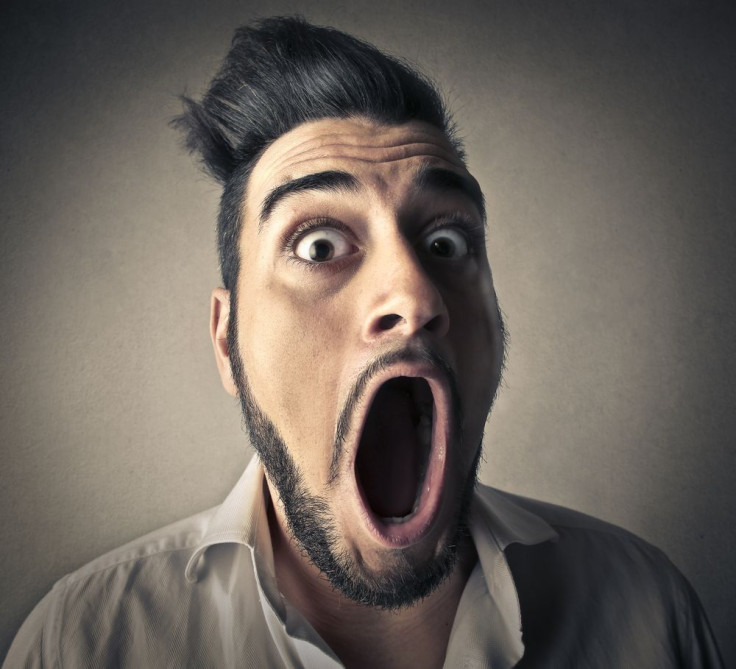Drunk And Wired: What Happens To Your Body When You Mix Alcohol And Energy Drinks

Vodka Red Bulls, Four Lokos (when they were popular), Jägerbombs. Our affinity for alcohol and energy drinks has really reached new levels. And why wouldn’t it? Particularly popular among the college crowd, they’re consumed under the impression that they’ll lower the chance of crashing — it will happen later on — while adding an extra boost of energy. That means the party’s going all night. Though that may actually be debatable, the effects of alcohol and energy drinks on the brain do support it. Whether it’s good for the body, that’s another issue.
Your Brain on Alcohol
It’s a common but obvious misconception that alcohol is a depressant. If it were, then a night out on the town would involve a trip to the local espresso bar for that high-energy, uplifting feeling. Alcohol is actually a combination of both, and its effects are affected by whether or not blood alcohol content (BAC) is rising or dropping. As the drinks begin to add up, they cause drastic increases of dopamine in the brain’s reward centers, especially in the ventral striatum. In turn, dopamine synthesizes the neurotransmitter, norepinephrine, and the two combined increase feelings of arousal, excitement, and impulsivity, Psychology Today reported. This is where the party is.
All that comes crashing down, though, as alcohol’s depressant effects begin, which is usually when BAC begins to drop, too. A study on these effects, with the help of positron emission tomography (PET) scans, showed that alcohol decreased brain function in the prefrontal cortex and the temporal cortex, according to Psychology Today. This illustrated for the researchers, the reasons why we act the way we do when we’re drunk.
The prefrontal cortex is responsible for decision-making and rational thought. Therefore, decreased activity in that part of the brain would explain why we tend to act stupidly, without a care for how we look when drunk. The prefrontal cortex is also responsible for tamping down aggressive behavior, explaining why we’re more inclined to act violently.
If you can’t remember what you did the night before, you can attribute that to reduced functioning of the temporal cortex, which holds the memory-consolidating hippocampus.
Your Brain on Energy Drinks
The goal for most people who drink energy drinks with their alcohol is to reduce these effects. Energy drinks like Red Bull, Monster, and Rockstar all contain not only excessive caffeine and sugar, but also mixtures of taurine, guarana, and ginseng. These extras are really just stimulants that are meant to exacerbate the effects of the caffeine in the brain. As caffeine blocks the adenosine molecule, which tells the brain it’s tired, from connecting, the brain’s natural stimulants, dopamine and glutamate, are able to act without inhibition.
Your Brain on Both
All of this comes together with the help of an inhibitory neurotransmitter called gamma-aminobutyric acid, or GABA, which holds back excitatory activity in the brain. Research has shown that one of the many GABA receptors is sensitive to alcohol. As a person drinks more alcohol, it promotes GABA activity, resulting in the aforementioned depressant effects. But energy drinks have the opposite effect on GABA. They prevent it from working, allowing the stimulant effects of alcohol and energy drinks to come together in sweet, wasted harmony.
If you know how to drink responsibly, these effects can be a welcome boost during a night out. But drinking them treads a fine line between enjoyment and a slew of health risks. For one, it’s pretty easy to forget that you’re still drunk, which can lead to overconfidence in your ability to do anything — driving, operating heavy machinery, skateboarding, etc. — besides walking to the subway or hailing a cab. Research has also shown that too much of the stimulants in energy drinks can cause abnormal contractions of the heart, while some even suggested that the two combined could lead to heart dysfunction.
The Food and Drug Administration banned caffeine in energy drinks in 2010 after a number of alcohol-related illnesses were reported in college campuses throughout the nation. The ban was targeted at four makers of alcoholic energy drinks, including Phusion Projects (the makers of Four Loko) and United Brands Company (the makers of Joose). But with or without caffeine in these drinks, people will continue to mix them themselves. Eventually, it all comes down to responsible drinking.



























